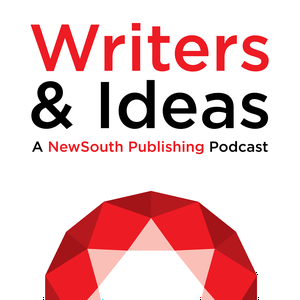Fiona Crawford and Lee McGowan, "Never Say Die: The Hundred-Year Overnight Success of Australian Women's Football" (NewSouth Books, 2019)
Today we are joined by two guests: Dr. Fiona Crawford, a writer, editor, and researcher whose work engages with social, environmental, and sports. Dr. Crawford writes for a range of publications including Four Four Two and works frequently Football Australia. We are also joined by Dr. Lee McGowan, a researcher, writer and teacher working at the University of Sunshine Coast. Dr McGowan works on the intersections of sport, culture and community engagement. Together, they are the authors of Never Say Die: The Hundred-Year Overnight Success of Australian Women’s Football (University of New South Wales Press, 2019). In our conversation, we discussed the booms and busts of women’s football in Australia, “sliding door” moments that offered alternative possibilities for women’s football, and the obstacles facing the contemporary women’s game around the world.
In Never Say Die, Crawford and McGowan both trace the history of women’s football in Australia and offer a commentary on the state of the women’s game today. The first three chapters chart the development of women’s football, emerging earliest in Queensland before being hobbled by the actions of men in state federations. In this way, the rise and fall of the early Australian game mirrored history of the famous English FA ban of women’s football.
An Australian women’s led football league re-emerged in the heady days of the 1960s and 1970s, when creative and hardworking people such as Pat O’Connor, Elaine Watson, and Heather Reid opened the way for an Australia wide women’s competition. In 1974, female administrators and players organized the Australian Women’s Soccer Association, which under the leadership of “quiet achieving ground breakers” built the foundations for women’s football today. The following year they competed in the Asian Women’s Championship, but never with the same financial support as the men’s side. Of course, success brought new challenges and the Crawford Report (no relation) helped to subordinate women’s football again under the national federation: Football Australia.
The latter chapters of Never Say Die deal with contemporary challenges to the women’s game including: the organization of the W-League, pay disputes between the women’s national team and the federation, injury issues among women’s footballers resulting from inadequate medical facilities and improper training, a dearth of female coaches, particularly at the top level, and the trajectory of the current Matildas. Crawford and McGowan’s comments in these chapters are vital for understanding the issues in women’s football today and have helped to shape public debate over issues such as pay disparities, an issue that has subsequently been addressed by Football Australia.
In their work, Crawford and McGowan offer a compelling and rich account of women’s football in Australia. Their work is informed not only by a deep dive into the archival resources, especially the popular press, but also by interviews with many former women’s players, referees, coaches and administrators.
Crawford and McGowan’s very readable and timely book will be of interest to people broadly interested in sport, especially those with a focus on women’s sport, but also to a public audience interested in the history of the Matildas before the 2023 Australian Women’s World Cup.
Keith Rathbone is a Senior Lecturer at Macquarie University in Sydney, Australia. He researches twentieth-century French social and cultural history. His book, entitled Sport and physical culture in Occupied France: Authoritarianism, agency, and everyday life, (Manchester University Press, 2022) examines physical education and sports in order to better understand civic life under the dual authoritarian systems of the German Occupation and the Vichy Regime. If you have a title to suggest for this podcast, please contact him at
[email protected] and follow him at @keithrathbone on twitter.
Learn more about your ad choices. Visit megaphone.fm/adchoices


